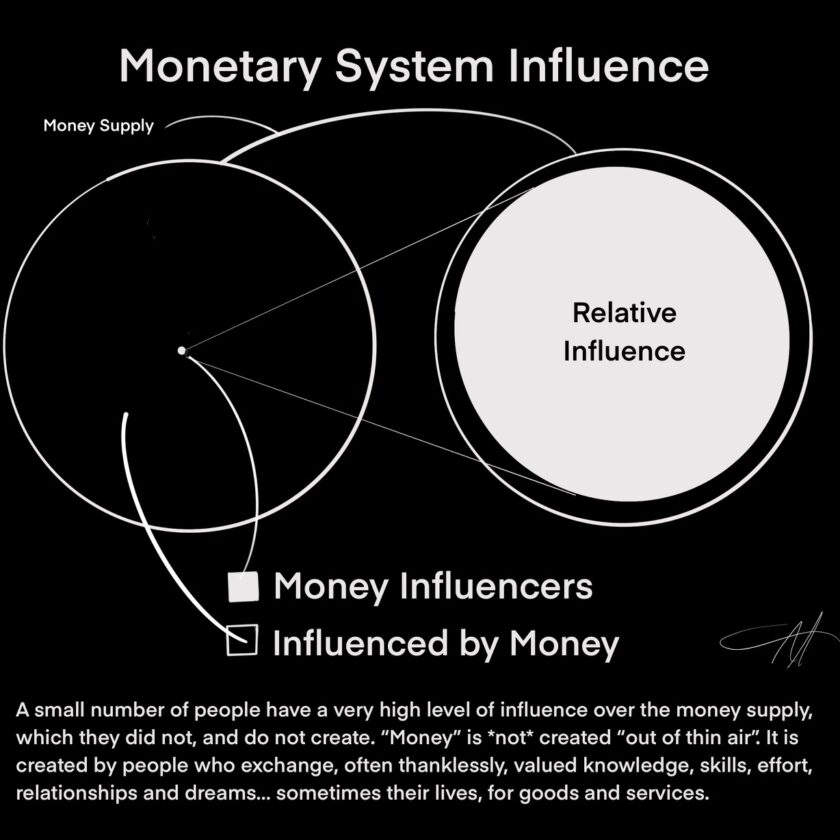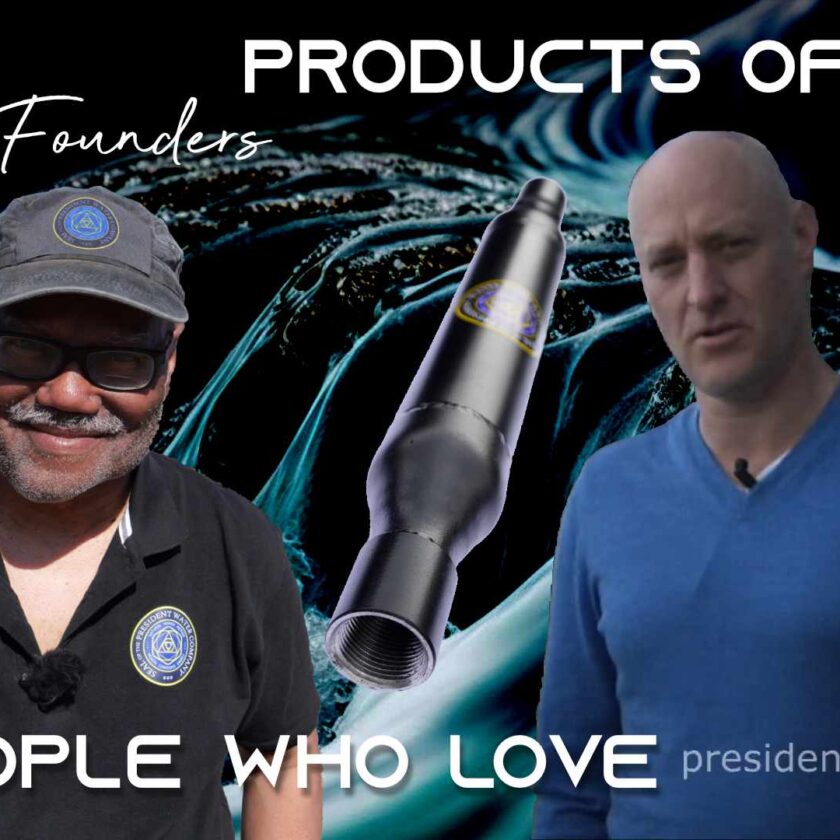NOTE: I wrote this essay in November, 1998.
Favoring Meaning Over ‘Ease’
It is far easier for one to go through life believing that they are powerless to make a positive, meaningful difference, than it is to go through life understanding, and even knowing that they can, and do influence others every single day. It is far more convenient to believe that you or your brightest ideas are insignificant, and that it won’t matter if the dedication, courage and perseverance required to present them to the world are not maintained. It is far more expedient to not care that the inspiring effects that we feel would occur by our positive achievements are indeed possible, and that it is sensible to not invest our time, energies, and talents toward their actuality.
Or so it seems.
The truth is that the above listed scenarios represent the recipe for a more “difficult” life – relative to the human spirit – when we embrace the “easy, but without meaning” mindset. I’m talking about a life where we base our idea of reality only in the status quo, “secure” only in that which appears to already exist, when we question or stifle our ability to initiate changes that might make life even better. This ideological position is taken when we do not understand and acknowledge our very real and innate ability to bring wonderful ideas – that sometimes drift in and out our minds’ eye – into being. In the absence of such positive belief, and in the absence of efforts that would give life and form to said beliefs, fear often fills the void, becoming the reason why that which seemed so good and right was left – not undone, but unattempted.
This does not mean that life will be universally “difficult” for everyone. Instead, these descriptions apply only when we choose the status quo, which becomes in essence, our “security blanket.” This can be anyone, at any station of life, just like you and me.
“Difficulty” means that we will be involved in, and enjoy fewer transformational and transcendental experiences than if we allowed ourselves to dream more expansively, believe in them, equip and prepare ourselves enough to give them possibility, and then include ourselves in their manifestation.
Dreaming, believing, preparing, and including in this manner transforms us. It also motivates and inspires others to embrace the same attitudes that have made us, not only more powerful, but happier and more hopeful amid life’s chaotic madness.
The power to transform our reality and world exists within us all the time. We are never separated from it. However, we tend to believe that power is external to us, or that we do not know how to unleash it. Or perhaps, we are afraid of said unleashing. Let me offer this little principle: With respect to any activity or idea that enhances your life, expanding love, understanding, harmony, and hope, “practice” makes better, if not “perfect.”
The practice principle applies to everything that is good, harmonious, and meaningful in our lives. It applies to that which is obvious (love one another), and not so obvious. For example, it is important that we practice being aware each day.
What?! “Practice being aware?”
Yes indeed. We oftentimes go about our way running, not on E for “empty,” but on A, for “automatic,” a mode of consciousness where we engage in little or no critical thinking. We behave like automatons, content to react without discerning or considering the effects thereof, and without considering that certain rote reactions can be overridden. How else can you explain our current flirtation with “rage?” It’s almost fashionable to “explode” in public these days; on the road, in the air, and so on. But it amounts to little more than “chic” insanity.
There is nothing therapeutic about rage. Yet, when another individual “goes off,” becoming an instant media sensation in the process, the behavior gets a clinical treatment instead of criticism. Someone who has a book to sell on the topic gives it a pseudo-scientific name, and then more “adopters” line up to demonstrate the behavior and get their ten minutes of fame (actually devaluing the previous “fifteen minute” rule). Though these machinations appear to give rage more validity and acceptability, we will eventually get bored with that too. Except for those who make a living off the pain and suffering left in the wake of one’s rage, this process achieves no particular good, though it does bump up the ratings on slow news nights
Courage on the other hand, is “rage” of another kind. It is behavior that is certainly not “automatic,” and represents an act of “good” that many will not only want to remember, but will even celebrate for generations to come. Courage is still quite rare because it cannot be “scripted,” or orchestrated for sensation value.
In a more mundane sense, certain decisions are made while one is in automatic mode because the individual “has always done it that way,” or because someone else always did it that way, and so on. These rationales are rarely ever true, but you get the point. For the same reasons we often automatically take stands “for” or “against” other groups of individuals without question or critical analysis, and unwilling to “break ranks” from possible harm that continued “alignment” might cause. Consider those who are on a mission to stop abortions by themselves resorting to intimidation and even murder. This is not stated in support of abortion, but against the use of harm as a way of ending it. After all, fire is most effectively “fought” with water, not more fire.
The unifying cause for one’s stand could be the other group’s race, religion, education, economic status, political affiliation, or something so arbitrary as the color or “cut” of the clothes that they wear. It doesn’t matter what reason we give ourselves for targeting other entire groups to disrespect. The price we pay for blind conformity to mindless disrespect is the limiting of our personal awareness of how to transform our own lives. Otherwise, we might realize that the way of transformation might actually require us to harmoniously pass through the experiential territory of our erstwhile “enemies.” Then what are we going to do with our disrespect? And more importantly, how are we going to interact with those with whom said disrespect was previously shared? Will they reject us? Should we care?
Some people would rather die in pride and pain than have to answer these questions, or live in harmony with those who don’t support their particular sacred cows. It could be because they refer to their God by another name, or that they don’t see evidence of such an entity. And, we have found far less important reasons to loathe, fear, and even hate others. This is the cauldron out of which the willingness to harm is brewed, and how the rocks and potholes of fear are strewn along our way. It is not an inspired way.
Inspiration requires awareness. In fact, inspiration is, in essence, a moment of divine awareness realized. Said realization is the crystallization of a wonderful idea into one’s consciousness; the bringing of a transformational and transcendental “way” into the conscious awareness of the inspired individual. This means that, once so inspired, the individual will forever look at a particular idea or situation differently than they did before the awareness. Something that was once deemed impossible may now appear plausible, even reasonable. At another point, with more attention and energy given, it becomes doable (as it was all along). Inspired moments add up, as pieces of a puzzle… or shall we say one’s puzzlement continues to fall in place, building to a breakthrough crescendo, otherwise referred to as a revelation.
Believers, seekers and builders of wonderful dreams are often puzzled by how to make their ideas real for others. It is often not a linear path toward realization. This is why awareness is so important, as is willingness. We refer to the willingness to go forward, to persevere, to travel in unfamiliar circles, and to interact lovingly with unfamiliar people. Most importantly, the willingness to embrace the Highest and Best, leaving alone the lowest and the rest. “Highest and Best” refers to the highest harmony and best effect for the greatest number.
As the highest and best is one’s motivation, and actions are taken toward one’s inspired vision with a love of the potential effect firmly in one’s heart, “barriers” to greater harmony and cooperation between the individual and others will eventually fall. The first and most important “barrier” to fall will have been internal. That is the barrier between the individual and their own power. It is the power of their spirit, made possible by inspiration. In the absence of inspiration, and by ignoring the internal power source, non-believers, non-seekers, and non-builders of wonderful dreams will “fill” their minds with fear, pain, illness, weakness, misuse and abuse, resentment and bitterness. They will live for, and even create the next disaster. They will also gain a certain amount of satisfaction when others appear to fail. Unfortunately, they will never know what they are missing, until they have a clue of what is possible.
What are we “missing” when we live by fear, and social distancing?
We will definitely miss the positive, perception transforming effects that our bright ideas would have had on others, if we had cared to advance them. We will also miss the harmonizing, power-building, and Soul-integrating effects that the process of building our bright idea would have had on us. Sadly, we will also not know just how wonderful things could have been. We will have “content” ourselves to observe what others are creating and judge them instead of being inspired by, and learning from them. In this way, we give them or some other outside force power while continuing to think that we have none.
Yet, it’s all about choice and the power thereof. The moment we grasp and embrace this simple idea, the transformational process can begin, for us. Life won’t get any “easier,” particularly in the beginning stages, for the momentum for a positive reality change must be built through the sustained application and focus of one’s thoughts and energies… not in a trance or reciting mantras per se, but by elevated hopes, aspirations, dreams and *interactions* with other human beings. Remember the practice principle. What it lacks in initial “ease” it gains in meaning. We all gain by the good deeds that get done.




